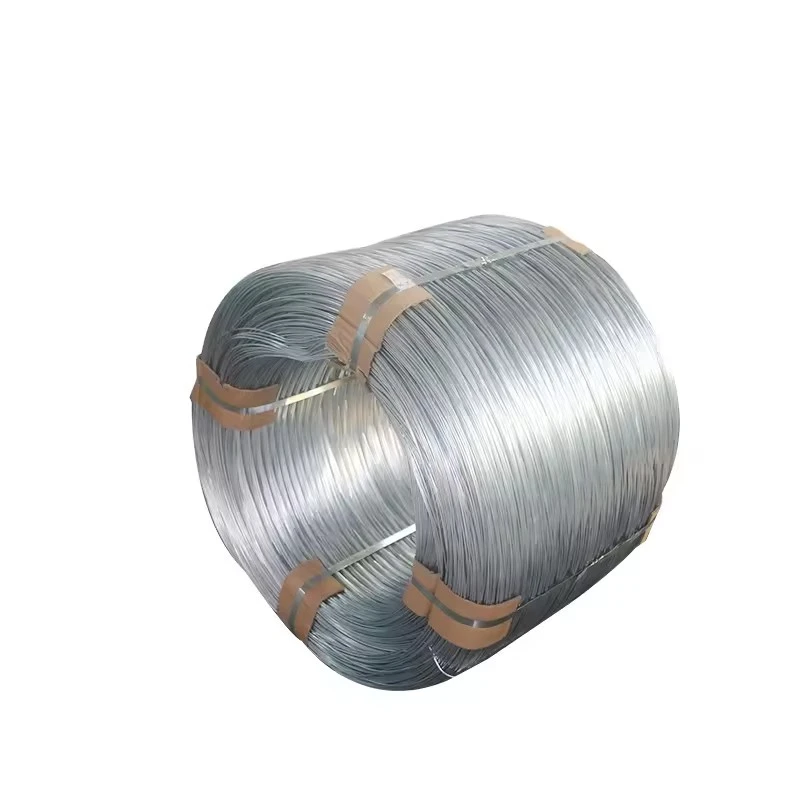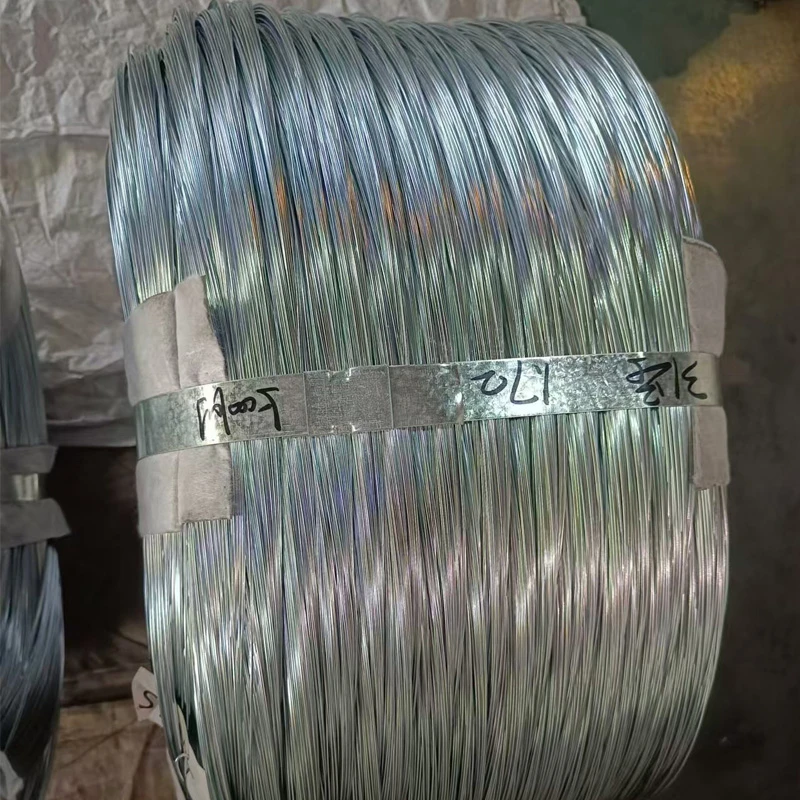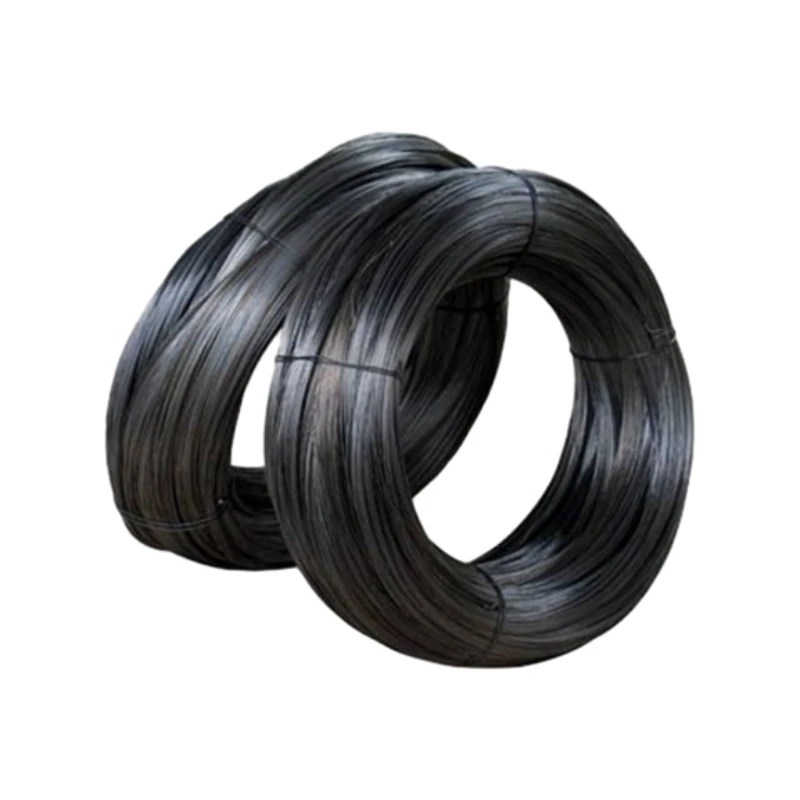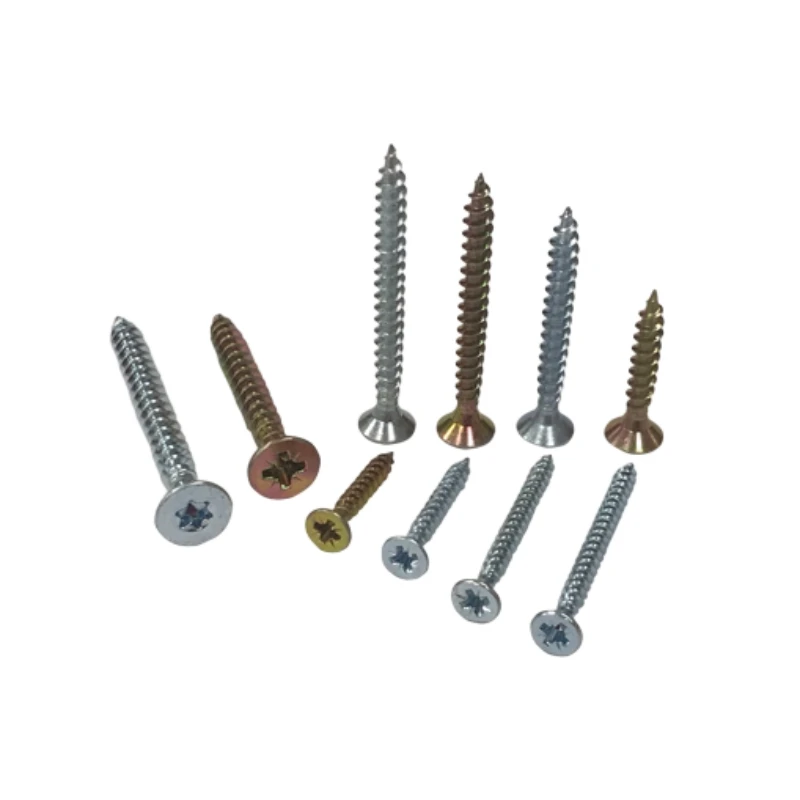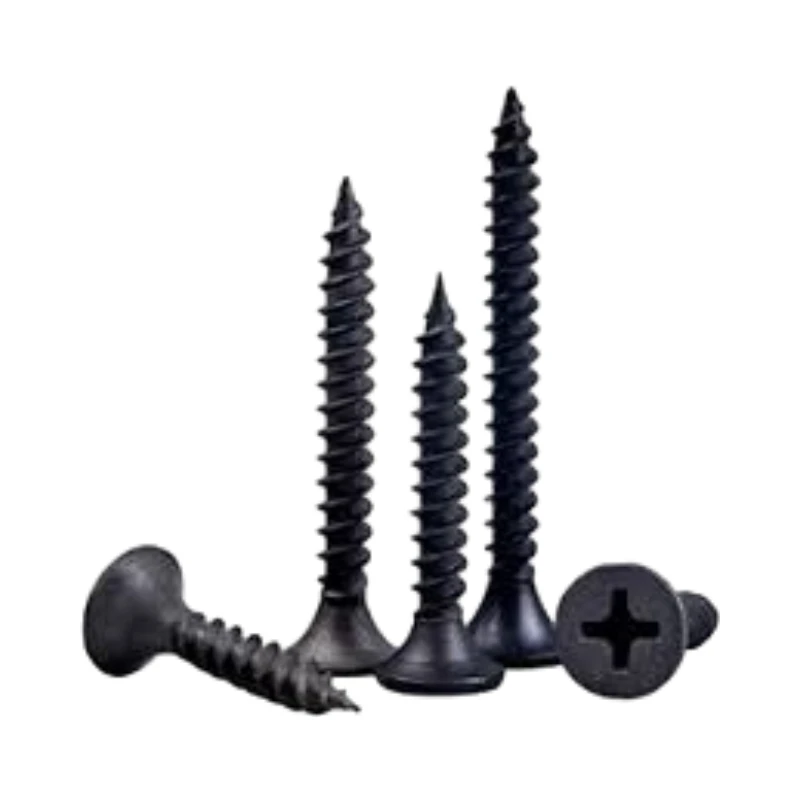
Talk With Us
+86-13601661296
Email Address
admin@sxjbradnail.comNeed 18 ga staple with stainless durability and strong hold?
The 92 Series Workhorse: A Field Note on the 18 GA Staple, 8.85 mm Crown
If you’ve built or repaired a chair rail at 7 p.m. on a Friday (I’ve been there), you already know the quiet hero is the 18 ga staple—specifically the 92 Series with an 8.85 mm crown. It’s the go‑to for upholstery shops, seating OEMs, and fixture builders who need clean penetration, solid hold, and zero drama in production.

What’s trending (and why it matters)
- Cordless staplers are everywhere, so consistent wire hardness and collation matter more than ever—misfeeds kill battery runtime.
- Designers are pushing lighter frames; 18 ga staple legs in 12–25 mm now dominate for plywood and engineered panels.
- Sustainability audits are real: low‑VOC resin collation and RoHS/REACH compliance increasingly show up on RFQs.
Product snapshot: 92 Series Decoration Furniture Staples
| Parameter | Spec (≈, real‑world use may vary) |
|---|---|
| Gauge / Wire Ø | 18 GA ≈ 1.20–1.25 mm |
| Crown width | 8.85 mm (92 Series) |
| Leg lengths | 10–40 mm common; upholstery sweet spot 12–25 mm |
| Finishes | Galvanized, copper‑plated, 304 stainless for high humidity |
| Point styles | Chisel, divergent (for fabrics/foam) |
| Collation | Resin‑bonded strips, low‑ash adhesive |
| Compatibility | Most 92‑series tools (check magazine spec before ordering) |
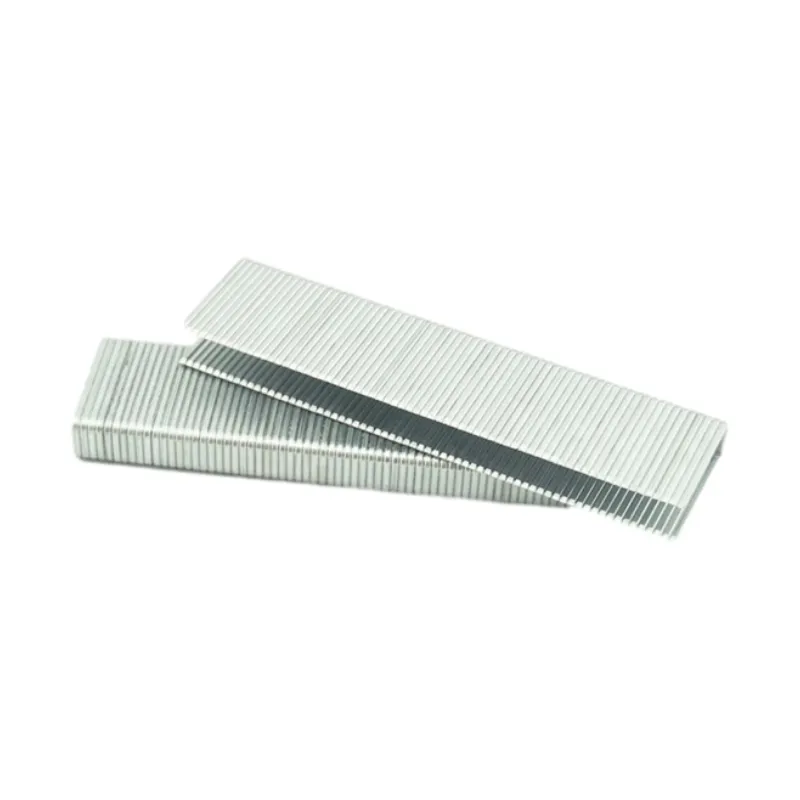
Applications and advantages
- Upholstery: tack strips, webbing, fabric-to-frame—18 ga staple holds without bruising the face fabric.
- Casegoods: drawer bottoms, cabinet backs, acoustic panels.
- Retail displays and RV/marine interiors where speed and low profile are key.
Advantages I see in shops: predictable penetration in mixed substrates, fewer jams, and cleaner crowns that hide under piping. Many customers say the copper‑plated finish slides “just a bit nicer” in harder birch ply—small detail, big mood.
From wire to box: process and testing
- Materials: low‑carbon steel wire (high‑tensile ≈ 1350–1800 MPa), optional 304 stainless.
- Methods: multi‑stage wire drawing, precision forming, stress‑relief, finish plating, resin collation.
- QC & testing: dimensional tolerance ±0.05 mm; bend/flex checks; tool feed tests (500–1,000 cycles/lot); pull‑out and shear on pine/plywood per ASTM F1667 guidance; salt‑spray ISO 9227 (galv 48–96 h; SS ≈ 500 h).
- Service life: indoor galvanized ≈ 10–15 years; stainless and dry interiors often longer; coastal installs vary.
- Certifications: ISO 9001 factory QA; RoHS and REACH material declarations available.
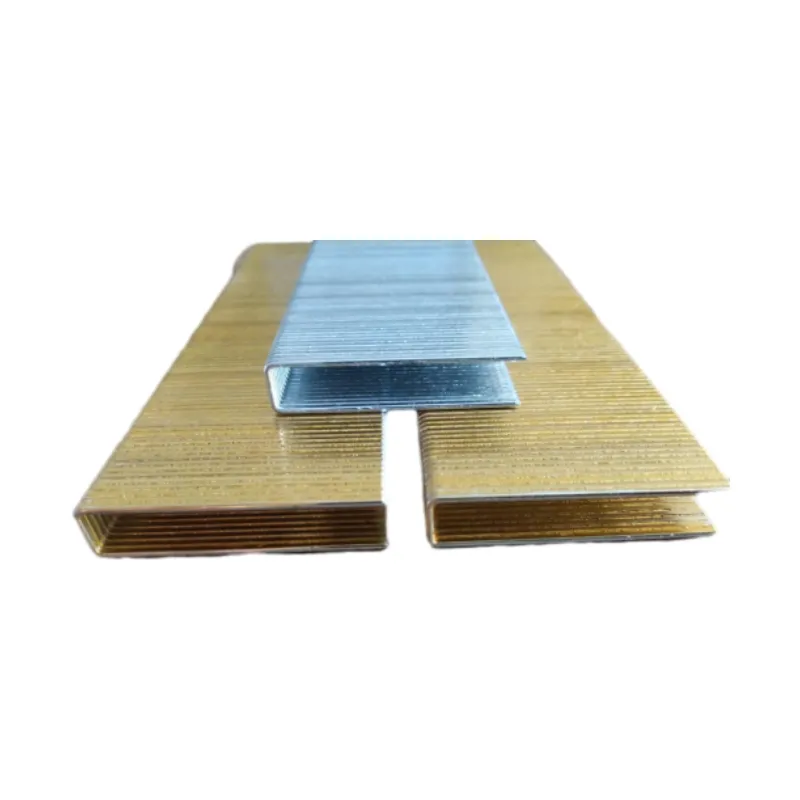
Vendor landscape (quick comparison)
| Vendor | QC & Standards | Customization | Lead Time | Price (≈) |
|---|---|---|---|---|
| Sxj (Dingzhou, Hebei) | ISO 9001; ASTM‑aligned tests; RoHS/REACH docs | Legs, finish, glue color, private label | 10–25 days typical | Factory‑direct |
| Generic import | Basic QC; mixed documentation | Limited | 3–6 weeks | Low |
| Big‑box brand | Consistent; retail‑grade specs | Minimal | In‑stock | Mid–High |
Customization that actually helps
- Leg lengths matched to substrate stack‑ups (foam + fabric + plywood).
- Finish upgrades for humidity (304 stainless) or visibility (copper‑plated).
- Point type tweaks to reduce fabric runs; resin color to aid line checks.
Two quick shop stories
Upholstery OEM swapped to 18 ga staple 16 mm copper‑plated: tool jams dropped ≈ 28%, pull‑out in 12 mm birch ply averaged 210 N vs. 175 N prior (n=30). Another case: retail display maker moved to 304 stainless 25 mm for a coastal rollout—no rust blooms after 500 h ISO 9227 salt spray.
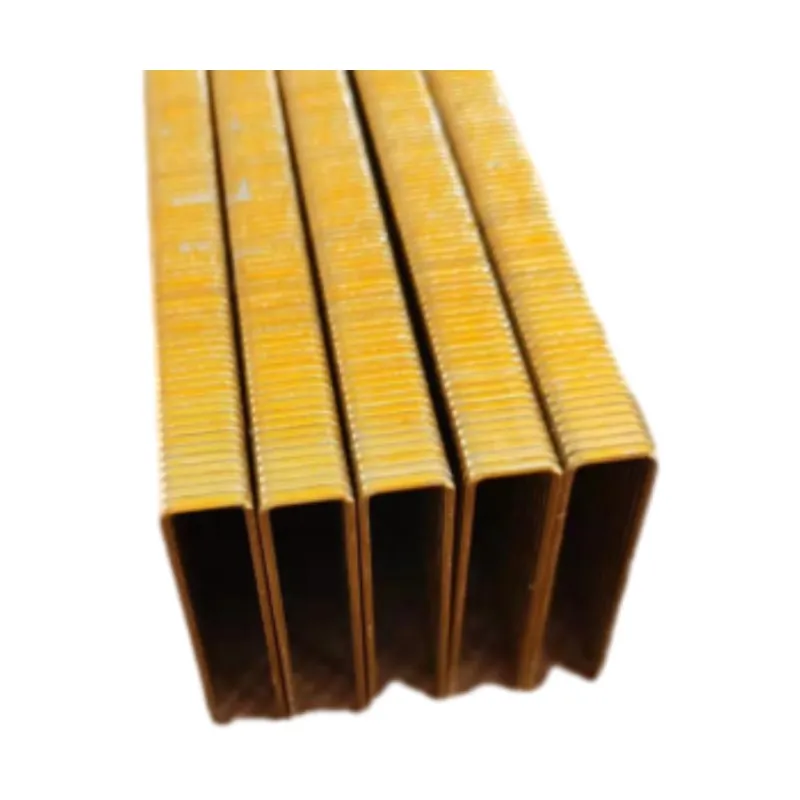
Final note: for most furniture frames, the 92 Series 18 ga staple hits that sweet spot—low visibility, strong hold, friendly to modern cordless tools. Check your tool’s magazine spec, then match leg length to your thickest stack. Simple, but it saves headaches.
- ASTM F1667 – Standard Specification for Driven Fasteners: Nails, Spikes, and Staples. astm.org
- ISO 9227 – Corrosion tests in artificial atmospheres — Salt spray tests. iso.org
- RoHS Directive 2011/65/EU on the restriction of hazardous substances. eur-lex.europa.eu
- REACH Regulation (EC) No 1907/2006 – Registration, Evaluation, Authorisation and Restriction of Chemicals. echa.europa.eu
-
Essential Guide to Steel Brad Fasteners: Uses, Specs & TrendsNewsNov.20,2025
-
Durable and Reliable SS Brad Nails for Every ApplicationNewsNov.20,2025
-
Masonry Brad Nails: Durable Fastening Solutions for Modern ConstructionNewsNov.19,2025
-
Hot Dipped Galvanized Brad Nails – Ultimate Guide for Durable Construction FastenersNewsNov.19,2025
-
Durable and Cost-Efficient Galvanized Brads: Your Essential Fastening SolutionNewsNov.18,2025
-
Galvanized Brad Nails for Treated Lumber — Durable Fastening Solutions for Lasting BuildsNewsNov.18,2025

